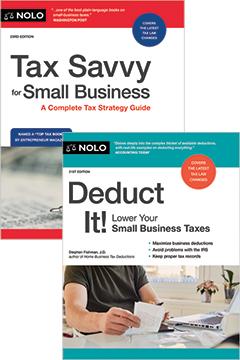Don't get stuck paying your company's debts. Learn how to keep others from piercing your company's corporate veil and holding you personally responsible for your business's obligations.
by: Craig T. Matthews
In general, corporations and limited liability companies (LLCs) offer their owners (shareholders and members, respectively) limited liability—that is, owners aren't responsible for the company's debts and liabilities. The draw of limited liability is usually what attracts business owners to these kinds of business structures, as opposed to business structures with unlimited liability (like sole proprietorships and general partnerships).
While corporate shareholders and LLC members aren't typically personally responsible for their company's debts, there are times when business owners are liable. Find out how to avoid liability for your corporation's debts and obligations.
How You Can Avoid Piercing the Corporate Veil
If you're a director, shareholder, or member of a corporation or LLC, take the following steps to ensure that a court won't pierce your corporate veil:
- Comply with formal rules for forming and maintaining a corporation or LLC.
- Maintain a separate bank account for the corporation or LLC.
- Don't combine (comingle) personal assets with those of the corporation or LLC.
- Don't divert corporate or LLC assets for personal use.
- Make a reasonable initial investment in the corporation or LLC so that it is adequately capitalized.
- Don't tell a creditor you'll personally guarantee payment of the corporation or LLC's debts.
- Don't use the corporation or LLC to engage in illegal, fraudulent, or reckless acts.
- Make sure the world knows it's dealing with a corporation or LLC by conspicuously identifying the company status (that is, "Inc." or "LLC") on all business cards, letters, quotes, invoices, statements, directory listings, advertisements, and all other forms of company communication. When signing company documents, clearly state your representative capacity (such as, "Jane Doe, President, Acme LLC.")
If you're sued personally for the debts of your business (a lawsuit names you and your business as defendants, or a creditor threatens to name you personally in a lawsuit), you might need the help of a business attorney to defend yourself. It's better to talk to an attorney sooner rather than later so you can know your legal options at the start.
How to Pierce a Corporation or LLC's Veil
If you're on the other side of the fence, trying to collect from a defunct corporation or LLC on an unpaid debt or court judgment, you might be able to pierce the corporation or LLC's veil and obtain a court judgment against the company owners.
First, read the information above to see if the business from which you want to collect seems susceptible to getting its veil pierced. If it's a small business, you'll have an easier time of it. Many small businesses operate without sufficient funding and without following corporate or LLC formalities. When these businesses make deals that can be considered reckless or fraudulent, a court can lift their corporate veil so that the owners' personal assets can be taken to satisfy the company's obligations.
Large corporations aren't immune from losing their limited liability status either. Courts will often pierce the corporate veil of a large corporation when the officers or directors create a subsidiary corporation and transfer debts to that subsidiary. For instance, in one scheme, the owners of a large corporation incorporate several undercapitalized subsidiaries (companies that don't have enough money to support their operations). The large corporation (called the "parent corporation") finances the operations of and exerts control over the subsidiaries. Such subsidiaries are commonly called "dummy corporations" or "corporate shells."
When creditors seek to collect debts from or enforce a court judgment against a dummy corporation, they're often out of luck because the dummy corporation doesn't have sufficient assets to pay the debt. In this situation, a court might pierce the corporate veil of the parent corporation, allowing the creditor to collect from the owners or members of the parent corporation. Piercing the veil prevents the creditor from suffering unjust costs.
If you want to pierce the veil of a corporation or LLC, it's recommended that you consult with a business attorney. A lawyer can advise you on the likelihood of a company's veil being pierced. They can also help you select the best legal action moving forward to recover an unpaid debt or court judgment.



